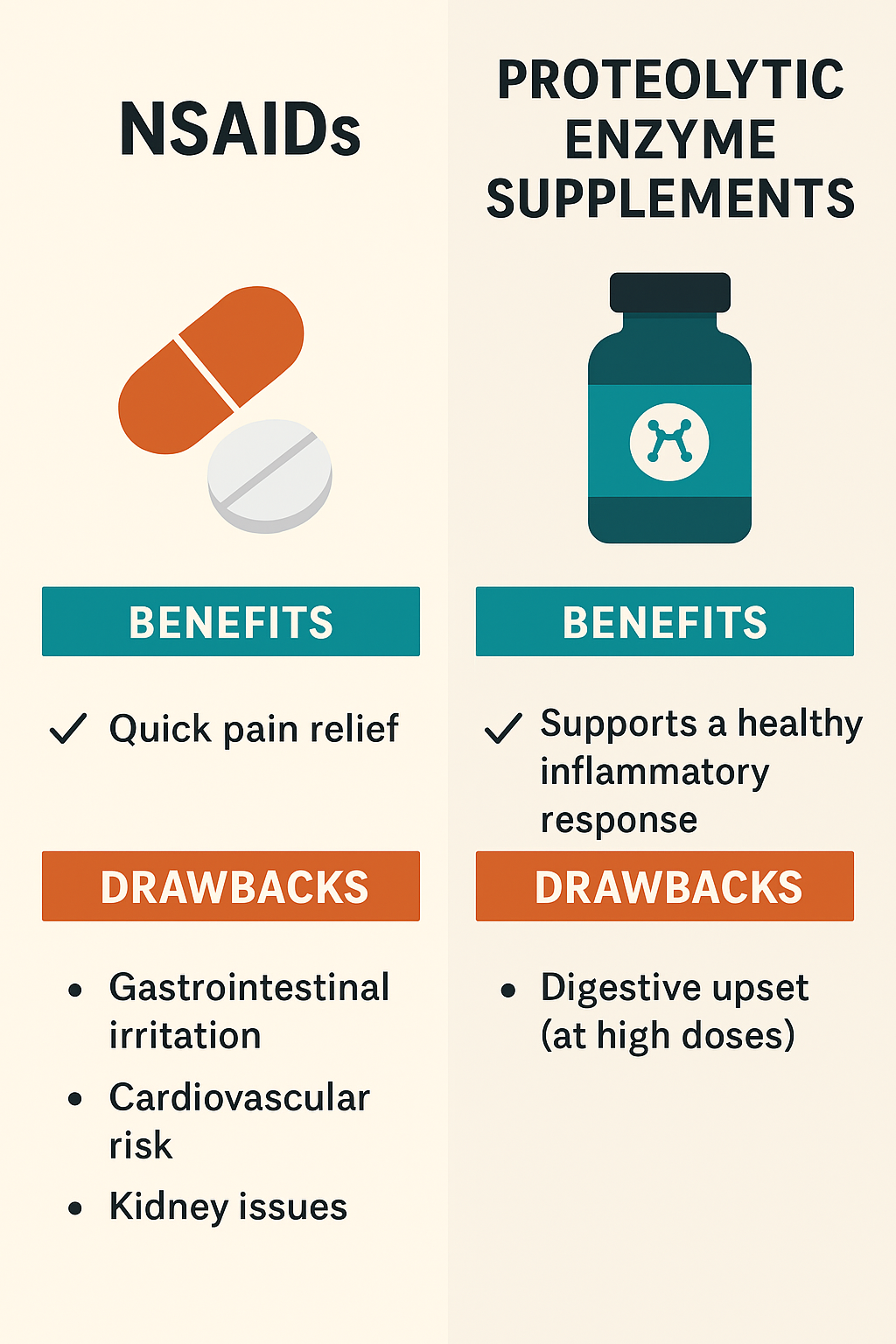Proteolytic Enzymes vs NSAIDs: A Natural Alternative
For decades, NSAIDs (nonsteroidal anti-inflammatory drugs) like ibuprofen and naproxen have been the go-to for managing pain and inflammation. While effective, NSAIDs can come with unwanted side effects such as:
-
Gastrointestinal irritation (ulcers, bleeding)
-
Cardiovascular risk with long-term use
-
Kidney stress in certain individuals
By contrast, proteolytic enzymes provide natural support by helping the body clear inflammatory proteins, regulate immune response, and promote healing — all without the harsh side effects often linked to NSAIDs.
Benefits of Proteolytic Enzymes for Inflammation & Recovery
Natural Inflammation Modulation
Proteolytic enzymes help break down pro-inflammatory molecules and excess fibrin that accumulate in tissues, supporting a balanced inflammatory response.
Faster Recovery from Strain & Exercise
Athletes and active individuals often turn to systemic enzymes to help reduce soreness, swelling, and tissue stiffness after intense training sessions.
Joint Comfort & Osteoarthritis Support
Studies suggest proteolytic enzymes may provide joint relief comparable to NSAIDs, making them a supportive option for those with osteoarthritis or chronic joint discomfort.
Improved Circulation & Healing
By breaking down fibrin and debris in tissues, these enzymes may support healthy blood flow and lymphatic drainage, accelerating recovery after injury.
What Are Proteolytic Enzymes?
Proteolytic enzymes, also called proteases, are specialized enzymes that break down proteins into smaller peptides and amino acids. While your body produces some naturally, supplemental sources such as bromelain (pineapple), papain (papaya), trypsin, and chymotrypsin are gaining attention for their systemic health benefits.
Unlike digestive enzymes taken with meals, systemic proteolytic enzymes are best absorbed on an empty stomach, where they can enter circulation and influence inflammation, tissue repair, and recovery throughout the body.
How to Take Proteolytic Enzymes for Systemic Support
-
Timing: Take on an empty stomach for best absorption into the bloodstream.
-
Dosage: Follow supplement instructions or practitioner guidance.
-
Consistency: Daily use supports long-term inflammation balance.
-
Combination: Works well alongside joint support nutrients (like glucosamine, curcumin, omega-3s).
Safety & Considerations
While proteolytic enzymes are generally safe, individuals should take precautions if they:
-
Are on blood-thinning medication (enzymes may enhance anticoagulant effects)
-
Have bleeding disorders or upcoming surgery
-
Have allergies to enzyme sources (pineapple, papaya, etc.)
Always consult with a healthcare professional before starting systemic enzyme therapy.
Conclusions About Systemic Enzymes vs NSAIDs
Proteolytic enzymes provide a natural, systemic approach to managing inflammation, supporting recovery, and maintaining joint comfort. Unlike NSAIDs, they work with the body’s natural processes — offering long-term support without harsh side effects.

